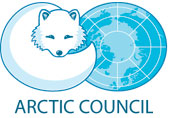 In April, a joint meeting of the Antarctic Council Consultative Members and the Arctic Council was held in Washington, DC. This was the first time these two groups met and the support for Polar Research from policy makers was very strong. Both of these groups have made strong statements about the legacy of IPY and the need to support APECS and the retention of young researchers.
In April, a joint meeting of the Antarctic Council Consultative Members and the Arctic Council was held in Washington, DC. This was the first time these two groups met and the support for Polar Research from policy makers was very strong. Both of these groups have made strong statements about the legacy of IPY and the need to support APECS and the retention of young researchers.
I had the pleasure of attending the Arctic Council meeting here in Tromsø the end of April, as a representative for IASC. I would like to thank IASC for giving APECS the opportunity to be part of this important meeting. I wanted to take the opportunity this month to bring to your attention the great work of the Arctic Council, who's secretariat office is located here in Tromsø at the Norwegian Polar Institute.
The Arctic Council was established in 1996 through the Ottawa Declaration as a high level intergovernmental forum to provide a means for promoting cooperation, coordination and interaction among the Arctic States, with the involvement of the Arctic Indigenous communities and other Arctic inhabitants on common Arctic issues, in particular issues of sustainable development and environmental protection in the Arctic. The Member States of the Arctic Council are Canada, Denmark (including Greenland and the Faroe Islands), Finland, Iceland, Norway, Russian Federation, Sweden, and the United States of America. In addition to the Member States, the Arctic Council has the category of Permanent Participants. This category is open equally to Arctic organizations of Indigenous peoples with a majority of Arctic Indigenous constituency representing: a single Indigenous people resident in more than one Arctic State or more than one Arctic Indigenous people resident in a single Arctic State. The Arctic Council also grants various organizations observer status allowing these groups to take part in not only the meetings, but the important work happening in the Arctic Council Working Groups. The scientific work of the Arctic Council is carried out in six expert working groups focusing on such issues as monitoring, assessing and preventing pollution in the Arctic, climate change, biodiversity conservation and sustainable use, emergency preparedness and prevention in addition to the living conditions of the Arctic residents.
For more information on the Arctic Council, visit http://www.arctic-council.org


